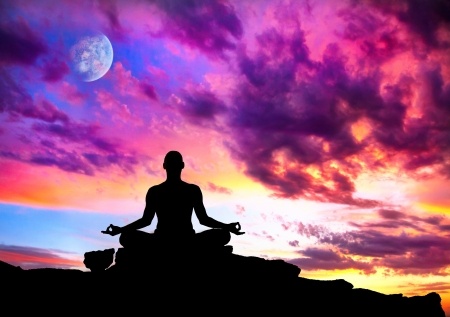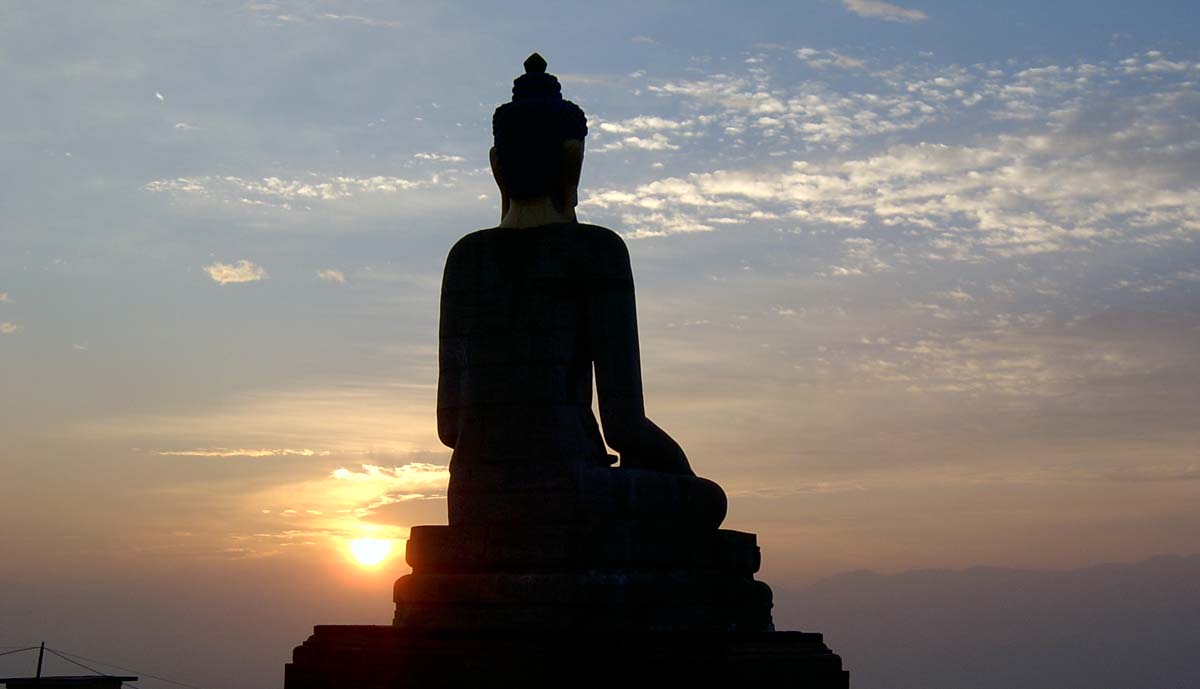Patanjali Yoga
Patanjali’s Yoga is the core of Yoga philosophy, and basis of the ashtanga system – the source of every kind of yoga we find in the world today. Though we have no firm idea of his identity, or even his existence as a single author, he is considered to be the writer of the Yoga Sutras – the oldest textbook of the yoga school of Yoga, dated to the second century BC. In approaching Patanjali’s Yoga Sutras, it is important to recognize that we are dealing with the basis of Yoga’s method; the starting point of an approach to psychology that will go through many more historical developments on its course to the form we find today.
Psychology of the Yoga Sutra
The standard translation of the Sanskrit word, ‘Yoga’ is yoke, in the sense of fully mindful action; the action of harmony between mind, body and soul. However, most commentators fail to point out that this particular meaning flourished only in Yoga’s later developments. When considering Patanjali’s Yoga Sutras in their true historical context, it is more appropriate to translate the word as method or effort. The ‘method’ recommended in Patanjali’s text is mainly a psychological one, the mental ‘effort’ of discriminating between truth and delusion (avidya). It is a practical, psychological approach founded on the highest metaphysical ideal – that the realization of true Being relies on separating the Eternal from the delusional fluctuations of matter (mind).
The key to Patanjali’s psychological method is the focus on citta – the ‘mind-stuff’ that constitutes our subjectivity as thinking beings. Incorporating intellect, self-consciousness and mind, citta is the instrument obstructing the recognition of truth in every human being. Our minds are restless (rajasic), blinded (tamasic) and distracted; ruled by ‘defilements’ leading them into endless delusions of thought. All attitudes, opinions and perspectives of seeing things are really the action of the vrittis; the result of personality and emotions, rather than true objective sight. The aim of Patanjal’s psychological astanga system is to achieve a single-pointedness of mind – a steady and consistent view of the world based on its true nature. This psychological one-pointedness is the true aim of Yoga; a psychological mastery forming the basis of Krishna’s advice in the later scripture, the Bhagavad Gita.
Patanjali’s Ashtanga System of Yoga
 Patanajali’s ashtanga
system is devoted to achieving this ‘one-pointedness’, and recommends a sequence
of actions to this purpose. The first steps, ethical codes of behaviour yama
and niyama, end emotional chaos and the production of new karmas in the
individual. Physical asana practice seeks to spread the mind’s self-consciousness
throughout the body, develop strength and provide the physical ease required for
meditation. Pranayama, or breath control seeks to further enhance ones
human abilities and capacity for fortitude; and Pratyahara forms the culmination
of these first five ‘external’ steps – where the individual masters and withdraws
his sense faculties from the outside world.
Patanajali’s ashtanga
system is devoted to achieving this ‘one-pointedness’, and recommends a sequence
of actions to this purpose. The first steps, ethical codes of behaviour yama
and niyama, end emotional chaos and the production of new karmas in the
individual. Physical asana practice seeks to spread the mind’s self-consciousness
throughout the body, develop strength and provide the physical ease required for
meditation. Pranayama, or breath control seeks to further enhance ones
human abilities and capacity for fortitude; and Pratyahara forms the culmination
of these first five ‘external’ steps – where the individual masters and withdraws
his sense faculties from the outside world.
It is at this point that the final three ‘internal’ means of Yoga commence: dharana (concentration), dhyana (absorption) and samadhi (union). The path completes in the Indian idea of enlightenment (jivamukti), where perfected insight provides the means of escape from the endless wheel of suffering and reincarnation (samsara). Whether or not one subscribes to the Eastern philosophy of multiple lives, the process towards Samadhi can be understood on the basis of universal human nature. The process of maximizing intelligence and clarifying focus towards a single object may be aimed at enlightenment, but the practice is equally applicable to every stage of human thought. The practice of ashtanga Yoga is sure to relieve mental stress and create an advanced form of focus in the mind. It is a pragmatic psychological discipline of universal application, as well as the highest spiritual practice known to man. It is up to you how you approach the path and how far you intend to travel.
For more on the incredible history of Indian philosophy click here to visit our Yoga Resources section.
Students of Yoga philosophy may be interested in Yoga and Ayurveda retreats at The Ayurvedic Healing Village.






 KAIRKARE - An Exclusive Herbal Oil for Body Massage.
KAIRKARE - An Exclusive Herbal Oil for Body Massage. SPACOL - Ayurvedic Medicine for Reduction of Cholesterol fro
SPACOL - Ayurvedic Medicine for Reduction of Cholesterol fro Aarogya Herbal Tea
Aarogya Herbal Tea KAIRCIN - Ayurvedic Facial Oil for Youthful & Glowing Comple
KAIRCIN - Ayurvedic Facial Oil for Youthful & Glowing Comple The Ayurvedic Cook Book
The Ayurvedic Cook Book Kairali - The Ayurvedic Healing Village has won the World T
Kairali - The Ayurvedic Healing Village has won the World T Indian Salon & Wellness Awards 2017
Indian Salon & Wellness Awards 2017 Healing Recipes: Back to Roots
Healing Recipes: Back to Roots Yoga & Ayurveda Retreat 2018
Yoga & Ayurveda Retreat 2018 National Accreditation Board for Hospitals and Healthcare Pr
National Accreditation Board for Hospitals and Healthcare Pr Kairali’s Dusseshra and Diwali Offer, 2018
Kairali’s Dusseshra and Diwali Offer, 2018

 Looking for a health retreat or need an Ayurvedic Treatment Packages: Kairali -
The Ayurvedic Healing Village.
Looking for a health retreat or need an Ayurvedic Treatment Packages: Kairali -
The Ayurvedic Healing Village. Want to learn Yoga or join one of our yoga training programs taught by international
experts?
Want to learn Yoga or join one of our yoga training programs taught by international
experts? Find a Kairali Centre near you. Ayurvedic treatments for various disorders such
as weightloss spondylytis etc.
Find a Kairali Centre near you. Ayurvedic treatments for various disorders such
as weightloss spondylytis etc.
